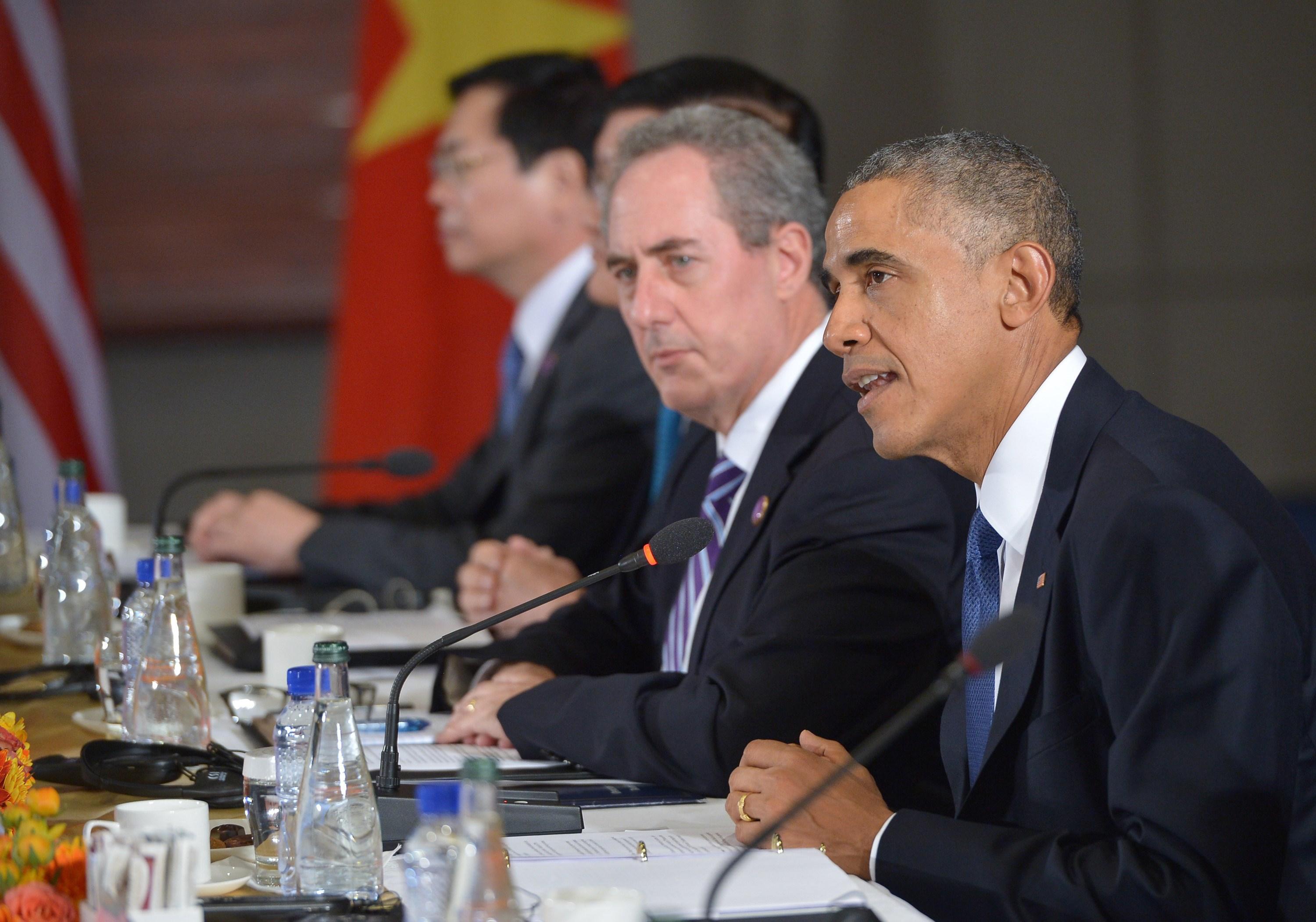In the next few weeks, Congress may give special status to a massive “free trade” treaty that you are not allowed to read. Based on leaks of portions of the deal, however, the Trans-Pacific Partnership (TPP) appears to be at least partly a grab bag of special favors for corporate interests—among them the entertainment and pharmaceutical industries—and an end-run around domestic law.
Naturally, given that Congress seems increasingly owned by moneyed interests, this mockery of thoughtful governance and policy may well happen. But there’s still time to modify it, or block it outright if the worst provisions remain, and I’m glad to see an emerging coalition aiming to do just that.
The few government and corporate officials who are permitted to read the TPP insist that the proposed multilateral deal among Pacific Rim nations is a 21st-century approach to trade and other economic issues. President Obama and his trade representatives call the TPP a vital boost for American interests. Oh, and it’s so wonderful and important that it absolutely must get “fast track” status, which basically means Congress would only be permitted to say yea or nay with little or no debate.
Freer trade is generally a fine idea. But what’s leaked out from the TPP negotiations so far is grim, and we can thank the American negotiators for a lot of the badness—and we can thank Wikileaks’ public-spirited leaker(s) for what we do know. About 18 months ago, for instance, Wikileaks published a draft of the “intellectual property” chapter, and published an updated draft last November. Public health officials were among many to sound the alarm, since the TPP would likely lead to higher drug prices and expanded industry control over medical technology and procedures.
One of the biggest winners if TPP goes through with the draft provisions would be Hollywood film studios. The consistent U.S. position—expanded control globally for copyright holders, including longer terms and even more draconian penalties for infringement (and even some security research)—amounts to a Hollywood wish list. Unfortunately for the rest of us, if enacted as drafted, the TPP would have “extensive negative ramifications for users’ freedom of speech, right to privacy and due process, and hinder peoples’ abilities to innovate,” according to the Electronic Frontier Foundation.
Which makes it absolutely no surprise that the latest heavy-handed lobbying for the TPP comes from Hollywood, which is always looking for ways to restrict or block any innovation that it can’t control outright. As the Los Angeles Times reported, the film studios’ top lobbyist, former U.S. Sen. Chris Dodd, has been imploring his former colleagues, especially Democrats, to move ahead with the deal.
A more recent leak raised alarms among all kinds of good-government, environmental, and other circles, because it might expand an already-abused system. The “investor state dispute settlement provision,” or ISDS, lets companies sue governments for acts that interfere with business. There’s some logic for this if the government in question has, say, simply expropriated a company’s property. But a version of this provision in an earlier treaty has led to disgusting behavior by tobacco giant Philip Morris in Australia and several other countries; for chapter and verse, watch this brilliant piece by HBO’s John Oliver. It’s better journalism on this topic than anything else I’ve seen on TV, by far.
Massachusetts Sen. Elizabeth Warren is among a number of people to sound a justified alarm on this. In a recent Washington Post op-ed, she gave an example of how ISDS might work:
Imagine that the United States bans a toxic chemical that is often added to gasoline because of its health and environmental consequences. If a foreign company that makes the toxic chemical opposes the law, it would normally have to challenge it in a U.S. court. But with ISDS, the company could skip the U.S. courts and go before an international panel of arbitrators. If the company won, the ruling couldn’t be challenged in U.S. courts, and the arbitration panel could require American taxpayers to cough up millions—and even billions—of dollars in damages.
Worse, Warren says, ISDS sets up a quasi-judicial system staffed entirely—this is not satire—by corporate lawyers. Further, she and other critics say the treaty could make it impossible for the U.S. to take serious action on climate change and could make the next financial crisis even more likely by undermining national sovereignty. If the critics can be believed, this is a grotesquely bad deal by any standard.
A big if, which makes the secrecy all the more unreasonable given the scope of the proposed deal. So why have America’s trade representatives, like the administration they serve, been ducking disclosure and dissembling when they do speak? Perhaps that’s because they know the public would get angry if it learned what was going on.
You might expect that a deal affecting up to 40 percent of the global economy would get near-saturation coverage from political and business journalists. Wishful thinking, as usual. What does it tell you about the journalism trade, for example, that most of what we do know about the TPP is a result of WikiLeaks’ publishing of several chapter drafts, as opposed to digging by traditional organizations? Oh, there have been some stabs at serious analysis in the press, but most of the coverage has been the standard blend of stenography and rah-rah fluff. New York Times ubercommentator Thomas Friedman, a TPP supporter, transcended self-parody when he said on TV that he supported another trade deal without knowing what was in it, because “I just knew two words: free trade.” His more reality-based colleague, economist Paul Krugman, took a closer look and concluded “there isn’t a compelling case” for the pact.
So let’s see the administration’s case—in public. Let’s hope Congress will choose to do its job, which starts with not abandoning its authority. The more we know about this deal, the worse it looks.
